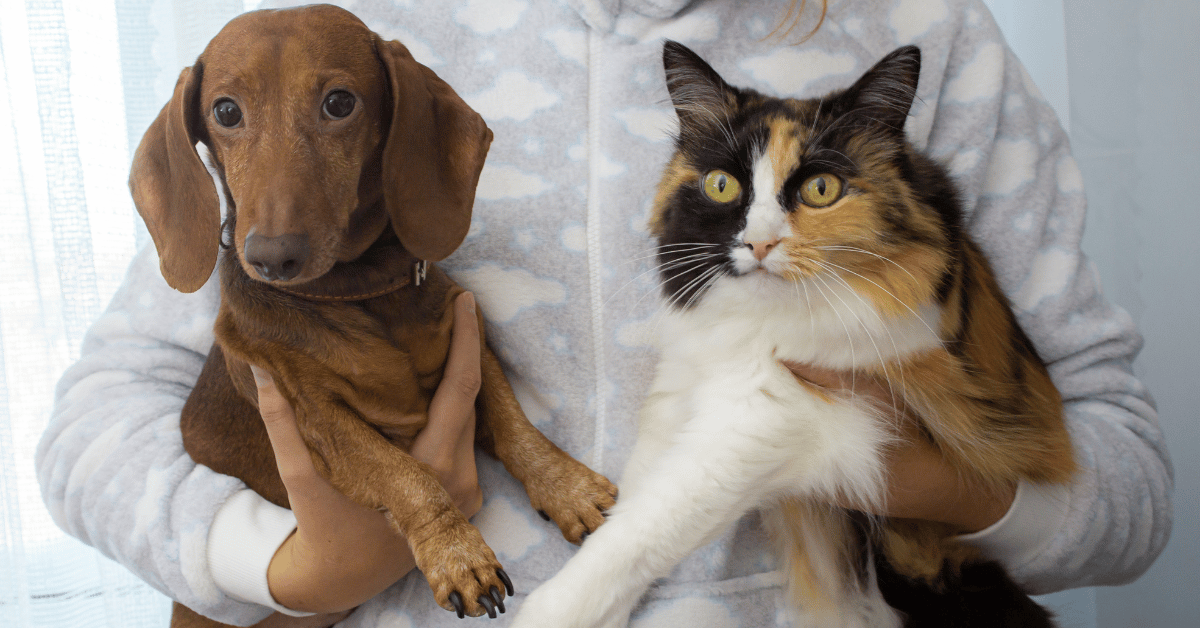
Looking for an accurate pet sitter rates calculator for overnight stays or hourly care? Whether you’re a devoted pet parent searching for top-notch care or an animal lover looking to embark on a pet-sitting journey, you’ve come to the right place.
Fair compensation is essential, whether you’re making compensation decisions or setting competitive rates for your services. From location to the type of care provided, let’s explore the factors that impact how much to pay a pet sitter and pet-sitting rates near you.
Calculating Pet Sitter Rates
According to UrbanSitter’s latest data, the average pet sitter’s hourly rate nationwide is $26.06/hr. When it comes to overnight pet-sitting services, the general range extends from $50 to $100 per night. A pet sitter salary typically ranges from $300 to $600 per week, depending on the hours and days involved. Beyond the average pet sitter rates, a set of other key factors can help determine a reasonable price for care for your pet or, if you’re a sitter, how much to charge for pet sitting. Let’s explore what factors impact rates and why.

Factors Impacting Pet Sitter Rates
From job location to a pet’s unique needs, here’s a quick rundown of considerations when calculating pet sitter costs:
1. Location: Urban areas and major cities tend to have higher base rates due to increased living expenses. The local demand for pet care services also influences pricing, as does the regional economy, which often translates to higher pet care costs in areas with a higher cost of living.
2. Type of Service: Hourly rates can vary between the type of pet, standard care routines, and specialized services involving medication or catering to unique needs. Providing medical attention, administering medication, or offering additional services like grooming and pampering can all impact the overall cost.
3. Length of Stay: Short stays, such as 30-minute visits, one-night visits, or weekend getaways, might have higher nightly rates. On the other hand, longer stays could offer discounted flat rates to accommodate extended periods. Some pet sitters even provide tailored packages for weekly or monthly commitments depending on the travel time.
4. Additional Responsibilities: Sitters handling medication schedules might charge extra for this level of care. Preparing or managing specific meals can impact rates if pets have special dietary needs. You may need to factor vet appointments, plant watering, additional animals, etc., into the rate per hour. Similarly, the level of physical activity required, including walking, exercising, and playtime, can contribute to the overall rate.
5. Experience: Rates may vary between novice and experienced sitters. Those with specialized training or certifications might charge higher rates due to their expertise. Additionally, sitters with experience handling unique or challenging cases may set standard rates differently based on their ability to provide exceptional care.
6. Cancellation policy: Some pet sitters may have specific guidelines regarding cancellations, including whether there are any penalties or fees associated with last-minute changes to the booking. Clarifying the cancellation policy upfront can help avoid misunderstandings and ensure a smooth experience for both parties.
7. Holiday Fees: Pet sitters may charge additional fees for services provided during holidays or peak seasons. Due to increased demand and potential scheduling conflicts, pet sitters often adjust their rates to reflect the higher demand and compensate for their availability during these periods. Discussing and agreeing upon holiday fees in advance is essential to avoid surprises and ensure transparency in pricing.
Related: Finding the Best Pet Sitter Jobs
Payment Methods for Pet Care
After calculating how much to pay a pet sitter for overnight services, a multiple-day stay, or a morning walk using a pet sitter rates calculator, it’s time to figure out how you’ll settle the bill. Here are some standard payment methods both pet owners and pet sitters can consider:
- Cash: Cash is a straightforward and immediate payment method. It’s particularly convenient for quick transactions and may be preferred by some pet sitters who appreciate the ease of handling physical currency.
- Pet Sitting Apps: For added security and convenience, utilizing pet sitting platforms with integrated payment calculator systems, like UrbanSitter, can simplify the payment process for pet owners and sitters. These platforms often offer secure payment gateways and streamlined transactions.
- Mobile Payment Apps: Mobile apps like Zelle or Google Pay allow quick and contactless smartphone payments. They can be particularly convenient when immediate payment is required.
- Online Payments: Digital payment services like PayPal, Venmo, and Cash App offer secure and efficient transfer of funds. They provide a digital trail for financial records, making it easy to keep track of payments.
- Checks: Traditional checks remain a viable option for payment. However, they may take longer to process, so ensuring the timing aligns with the pet sitter’s expectations is essential.
- Bank Transfers: Direct bank transfers or wire transfers can be a reliable option, especially for longer-term pet-sitting arrangements. Both parties need to exchange banking information for this method.
It’s important for both pet owners and pet sitters to communicate and agree upon the preferred payment method beforehand. These agreements may include whether you pay a pet sitter before or after, the preferred payment type, or how to settle overnight costs. Establishing a clear payment schedule and discussing potential transaction fees can help ensure a smooth and transparent payment process for all parties involved.
Now you’re in the know about the factors that contribute to pet sitter rates. UrbanSitter is ready to connect you with exceptional pet sitters.
Related: UrbanSitter’s Guide to Pay Rates


